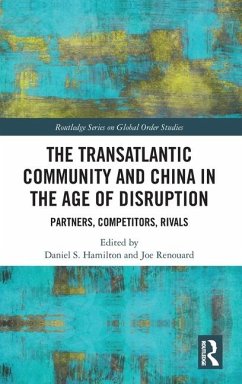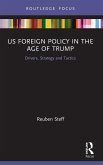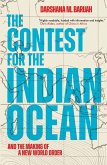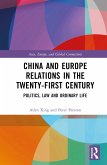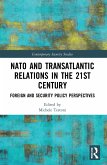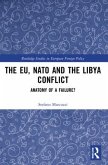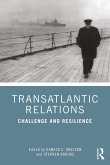This volume analyzes what China's rise means for the transatlantic community in a new age of disruption-an age marked by great power rivalry, technological upheavals, and the diffusion of power.
The book explores how today's conditions-including heightened Western concerns about Chinese influence operations, Chinese efforts to manipulate critical economic interconnections and dependencies, rapid technological advances, the Russia-China entente, and growing linkages between North Atlantic and Indo-Pacif ic security-have forced Western actors to adopt a more differentiated approach. In this great power competition, they must decide how and where to work with China as an important partner, how to address China's competitive challenges, and how to address China's efforts to forge a set of norms and institutions to challenge the open, rules-based international system.
The book will be of key interest to students and scholars of Transatlantic Relations, International Relations, Global Governance, European Politics, Asian Security, US and EU Foreign Policy, and Sino-Western relations. It will also be of interest to think-tank researchers and policy practitioners.
The book explores how today's conditions-including heightened Western concerns about Chinese influence operations, Chinese efforts to manipulate critical economic interconnections and dependencies, rapid technological advances, the Russia-China entente, and growing linkages between North Atlantic and Indo-Pacif ic security-have forced Western actors to adopt a more differentiated approach. In this great power competition, they must decide how and where to work with China as an important partner, how to address China's competitive challenges, and how to address China's efforts to forge a set of norms and institutions to challenge the open, rules-based international system.
The book will be of key interest to students and scholars of Transatlantic Relations, International Relations, Global Governance, European Politics, Asian Security, US and EU Foreign Policy, and Sino-Western relations. It will also be of interest to think-tank researchers and policy practitioners.

